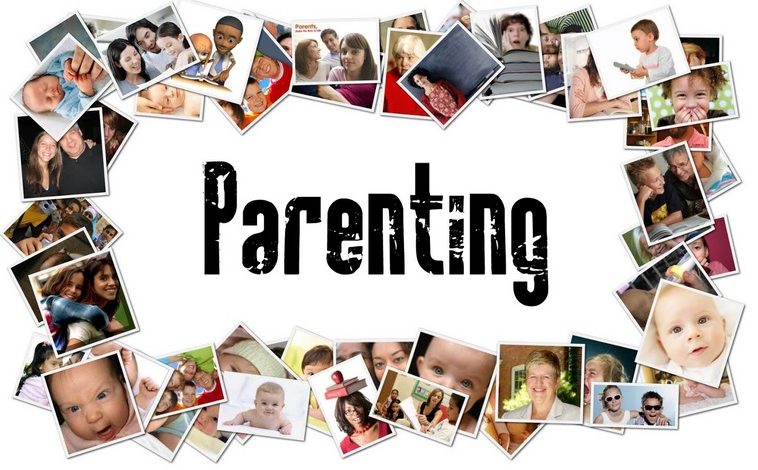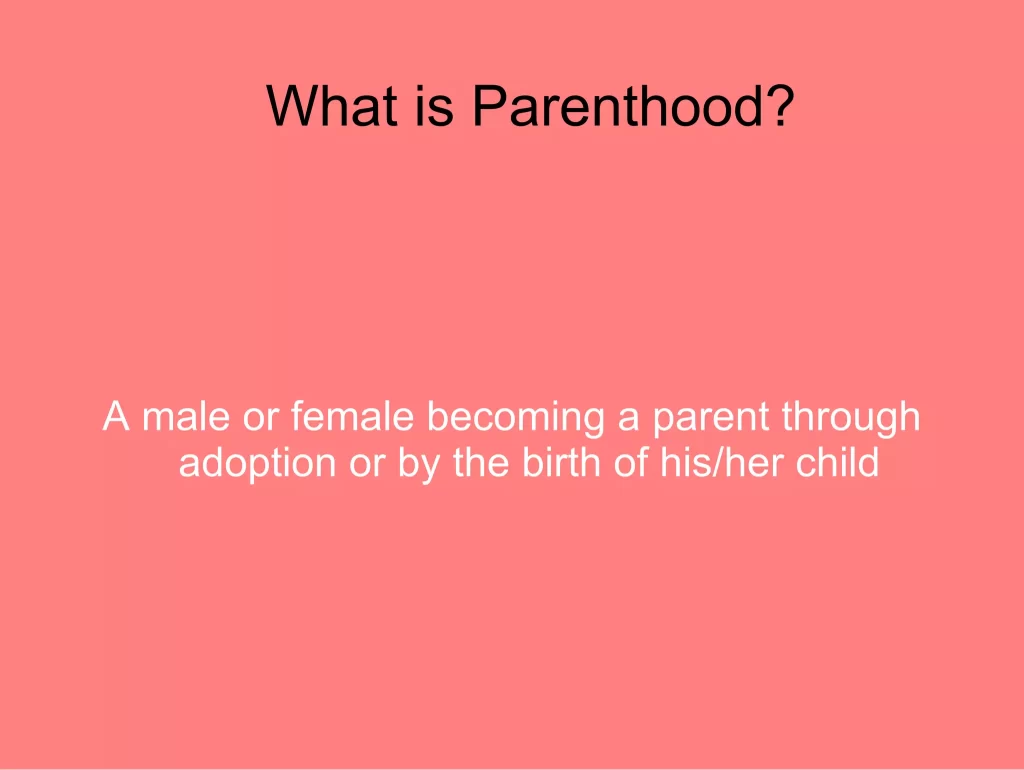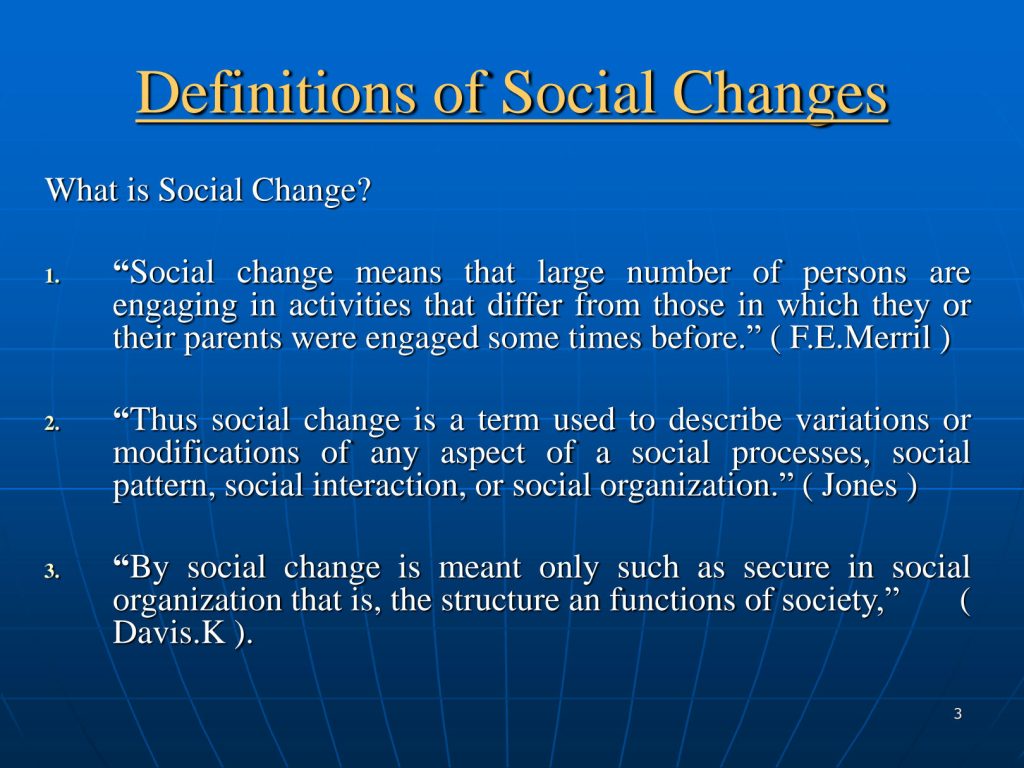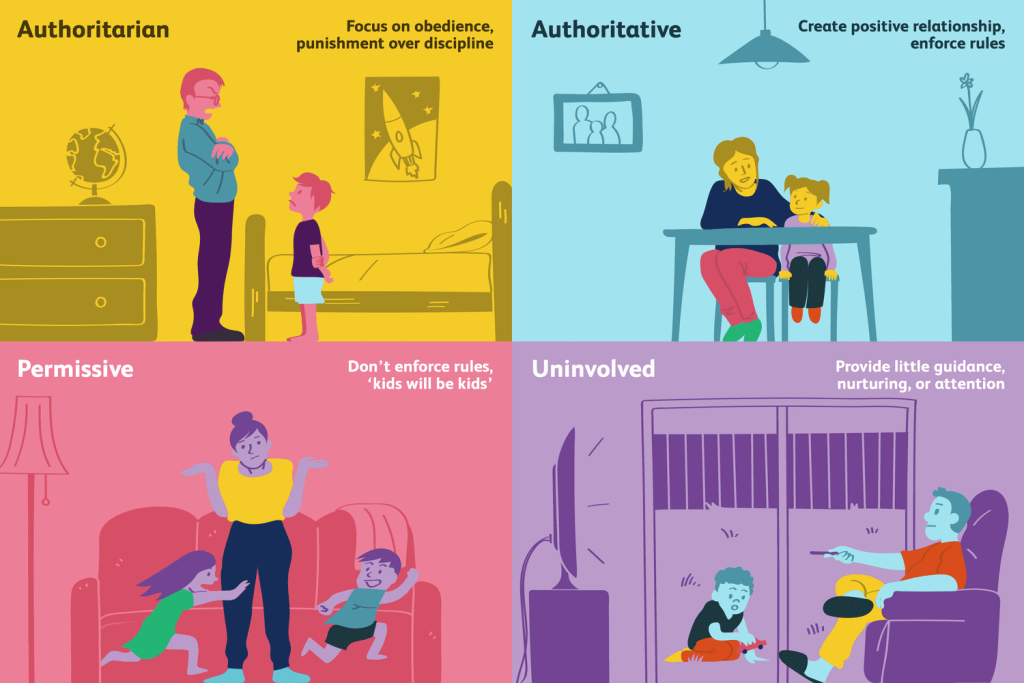What is parenthood in sociology?

Introduction:
Reproductive parenthood tourism happens where individuals travel to get to such regenerative advances and administrations as in vitro preparation (IVF), sperm and egg gift, sex determination and embryonic determination, and surrogate parenthood (Martin, 2009; Whittaker, 2010) and, the talk, premature birth, contraception and vasectomies.

Parenting and Social Changes
Today, parenthood is closely linked to the wider management of family and work life. To describe modern society, sociologists often use the term “end of modernity”. Modernity reflects rapid and continuous changes, uncertainty and confusion in social reality (Giddens 1991). According to Krystyna Slany, in modern theories, change is explained in at least four dimensions:
- Technological change linked to science and knowledge
- Economic changes affecting labor and production management
- The social changes brought about by new social movements, especially the feminist movement and the sexuality revolution, which changed the patterns of family, marriage, and other social relationships
- Cultural change, where new customs, values, ideas and identities emerge
Social and cultural changes are important in this book. This is because many of these changes affected existing parenthood of motherhood and fatherhood, and redefined the contract between men and women. But economic changes have affected the way parents work today: where they work, how long they work, how (in)secure they are in the labor market, how much and where they live. All of these factors affect how men and women handle parenting and how parenting affects them.
The ways in which men and women participate in childcare are not only linked to the changing circumstances of the modern world but also to traditional ways of working for families and their members. But it is also related to the economic side of social reality. Karl Marx and Friedrich Engels (Engels 1884/2010; Marx and Engels 1848/1969) emphasized the connection between the economic system and the aristocratic family pattern based on gender inequality.
In a capitalist society, the single-family family is an economic unit where there is a specific division of labor and work. Women depend on men to engage in wage labor to support their families. Family relations between workers “are transformed into mere articles of commerce and instruments of labor” (Marx and Engels 1848/1969). The world described by Marx and Engels is a phenomenon of the past, but even today the management of family life is closely linked to the management of the economy and work. That is why it is impossible to analyze the work of parents today without taking into account the working conditions of parents. Today, the power of global competition affects every person’s life.
On the one hand, the European Union has promoted high levels of employment since its inception. The Europe 2020 strategy sets the goal of increasing people’s labor market participation from 20 to 64 to 75% by 2020. There are many social benefits associated with work. This means that European welfare states expect almost everyone to work in the labor market. In a capitalist world, wage labor is seen as a way to earn money to live and feed oneself (Chang 2014). Remuneration should protect individuals from poverty and homelessness. But at the same time, the payment methods are not very good.
Individuals in the labor market face unstable working conditions, low wages, unemployment, and working hours that are too long or too short. Sometimes they move to other countries, in search of work. Women and people from various minority groups face discrimination in the labor market. In the context of parenting, this means that parents are vulnerable to the various conditions that arise from competitive capitalism.

Parenting is a role from a social perspective
Keeping in mind all the issues mentioned above, this book analyzes parenthood considering various aspects and situations. My goal is to provide a sociological discussion of new parenting practices based on examples from Polish society. I argue here that the most important way to move away from the construct of work-life balance has become one of the most common theoretical tools for analyzing dominant experiences in modern capitalist societies. I argue that the conceptualization of work-life balance is subjective and based on a number of implicit assumptions that do not accurately and critically analyze the experiences of parents today.
These ideas are not free, but, to use Alvin Gouldner’s (1970) concept, they promote an “accepted world” of what is seen as a desirable way, a “just” parenthood way. Also, it is not clear what work, life, and balance represent, making the topics unclear. I discovered the following six secret tips for balancing work and family life:
- There is an self-evident boundary set between the range of work and non-work exercises in ordinary life.
- Only paid work within the work showcase is perceived as work, in this manner in an perfect world everyone ought to be locked in in paid work. Those who don’t engage in paid work never work.
- Unpaid work within the domestic sphere isn’t seen as work, and as such it isn’t seen as an action arranged on the production of merchandise and administrations. Subsequently, it is seen as being less critical than paid work within the work market.
- Everyone is anticipated to be in paid business or at slightest look for it.
- Everyone is anticipated to have a family and support family relationships.
- Everyone ought to combine paid work with family life and discover a few fulfillment with this combination.
Since the build is predominant and often embraced to analyse child rearing nowadays, I propose to begin considering around child rearing in terms of different sorts of work, instead of something that’s in collision with work (in particular paid work). I am persuaded that such an approach would way better serve sociologists for giving an satisfactory and basic depiction of social reality.
To do this there’s a got to get freed of considering in terms of work and life as two inverse components in individuals’ lives. Work is an vital component of people’ lives and as such ought to not be treated as something unmistakable, but or maybe as a significant component of person lives in capitalist societies.
Types of Parenting
- Rescue Parents are always interferometer with their children’s exercises. Parenthood persistently offer assistance with homework (or do it for the child), look for uncommon favors for their children from instructors and/or coaches, surge in some time recently the child can fall flat to extricate the child from the hazard of falling flat, or make beyond any doubt the child never needs to confront any results for his or her activities. Protect guardians weaken their child’s self-worth by evacuating their child from any hazard of disappointment within the interest of triumphs. This makes the child feel unable of doing things on his/her claim. Protect guardians raise children who are subordinate, non-individuated, and regularly enmeshed.
- Ruling Parents over control and coerce their children. Parenthood regularly request compliance and are cruel and excessively strict in their disciplines. They persistently drive their children to dress and act as the parent’s crave. They drive their children’s choices of companions, pastimes, and interface. They moreover utilize mortification and disgrace to create the child comply. These ruling guardians make the children detainees of their control and subordinate upon the parent or somebody who inevitably replaces the parent (such as a ruling life partner).
- Mentoring Parents tend to arrange and share control with their children. They ordinarily let the little things be chosen by the child (clothing, lesson plans, and pastimes). They moreover tend to set rules and arrange with their children on how to continue on different vital things (least age to date, when and what sort of cell phone to procure, and when to urge a driver’s permit). They regularly grant the child choices. For illustration a parent might say, “I can’t bear to urge you a car of your claim, but on the off chance that you don’t intellect as well much driving the ancient family van, I’ll share the protections costs with you.” Or for a more youthful child, the parent might say, “You can wear your shirt or tank best, but you can’t go shirtless to the stop since the sun might hurt your skin.”

Guardians attempting to raise their children to be responsible co-adults may got to know what being a co-adult child implies. Co-adulthood is the status children accomplish when they are autonomous, competent of satisfying obligations and parts, and sure in their possess personalities as rising grown-ups. The inverse of co-adulthood is essentially grown-up subordinate children, numerous of whom are enmeshed with their guardians and other family members.
A co-adult is free, but that does not infer that she or he is not in require of back and direction. Fair the inverse is genuine. Numerous thinks about of college-aged youthful grown-ups appear a proceeding dependence on their guardians clear until their mid to late twenties. Clinicians will tell you that their thinks about propose that the U.S. youthful grown-up incorporates a completely develop brain around the mid to late twenties.
Conclusion:
From a sociological viewpoint, parenthood is one of the foremost critical encounters that the lion’s share of individuals share. To get it how society works it is essential to perceive how individuals satisfy their parental commitments. In modern times the joins between parenthood and paid work appear to be center ranges of intrigued for the welfare state.
Within the taking after examination, my point is to depict the encounter of child rearing in Clean society at the starting of the twenty-first century. However I move absent from the prevalent concept of a work/life adjust that, as I contend, isn’t always adequate to dissect child rearing encounters. I propose to look at parenthood within the setting of three sorts of work that are carried out in association to it. These are: care work, paid work and residential work.

What is the concept of parenthood?
Parenthood as child-caring
Caring for children involves various activities–attending to them, feeding them, protecting them. Perhaps ‘child-tending’ is the better term, for it focuses on parental activities, not the sentiments that ‘caring for’ may suggest.
What is parenthood in sociology?
Parenting is the process of supporting the physical, emotional, social, and intellectual development of a child from infancy to adulthood. Learning Objectives. Contrast the four parenting styles: authoritarian, authoritative, permissive, and uninvolved.



